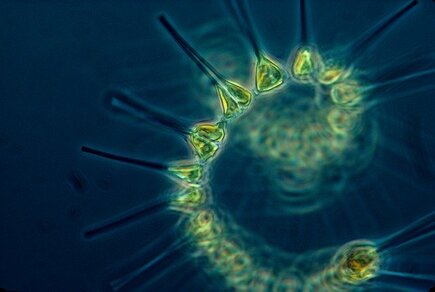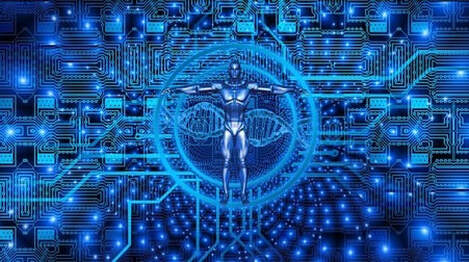Fabrício Edler Macagnan PhDAssistant Professor, Dept of Physical Therapy, Graduate Program in Rehabilitation Sciences Can technology really be seen as something unnatural? Or is it plausible to assume that all the evolutionary processes developed on our planet have been truly responsible for our ability to promote evolution (transformation) in a fully conscious and directed manner? Well, if this is true, then we can say that “all technology is eminently a natural manifestation of the evolutionary process.”  In the ongoing developmental process, how many different random combinations were needed to enable the evolution of simple inorganic compounds into extremely complex living organisms, capable of interpreting, acting and reacting to environmental events? In the animal kingdom, we find numerous individual and collective actions that occur to ensure the preservation of species. Each of these strategies have been tested for efficiency by the process of natural selection, and from this perspective it can be said that the validation of a viable adaptation represents a natural manifestation of biotechnological development. These acts of biotechnological development range from behavioural patterns that are beneficial for preservation of the most adapted genes and, consequently, more prone to reproductive success, through to defence techniques using chemical substances capable of triggering complex and fatal metabolic reactions in opponents (to this day, the pharmaceutical industry maintain strong interest in these biotechnologies). There are numerous evolutionary strategies that could be described, but in short, each of these adaptations (strategies) could be framed under the concept of technology, as technology involves the systematic study of techniques, processes, methods, means and instruments that are used to achieve a determined goal. The great difference between the processes occurring at the beginning of species evolution and those that now occur is really the most remarkable fact of all development – the ability to become aware of certain processes of existence (life). Whenever I stop to think about it, I’m extremely curious to know at what point in evolution did the ability emerge of being able to connect information from different body movement receptors (sensors) in a sufficiently organised way to permit repetition (from a sequence of carefully and efficiently stored historical events) of the intensity, direction, and reaction of forces acting on moving bodies to the point of making interpretation and reaction intentionally directed for one's own benefit. This intricate capacity for historical analysis has enabled numerous evolutionary advances in species, which have since developed techniques for collecting, hunting, fighting and defending, whether individually or collectively, with such efficiency that survival in ensured, even in the face of drastic environmental transformations. Even more noticeable has been the developments in language and writing, a crucial step for storing and sharing huge volumes of information, which has accelerated the creation of useful techniques for dealing with questions involving mathematics, physics, chemistry, biology, astronomy, etc. Moreover, even after conquering land, sea and sky, all known sciences have undeniably been heavily affected by the computational advances in data processing and sharing (internet). Humankind has greatly enlarged knowledge of many natural events and even ventured into Space, but without a doubt, something that is truly spectacular is the surprising discovery of the nano-microscopic features that enable us to edit (manipulate) portions of our genetic library, a place where information has been perpetuated over eons. Future prospects for the use of gene editing in the scientific scenario remains unclear, but the possibility of acting intentionally at a molecular level may effectively contribute to a reduction in the need to treat disease and guarantee a new step in the evolutionary scale, in which our focus shifts to the promotion of health improvement and living conditions.  For a long time the natural selection of best strategies has been restricted to the field of spontaneous randomness, but we have now developed rigorously designed laboratory assessments to test hypotheses, which are validated through a specific set of statistical rules that increasingly allow us to project the future probability of success or failure of a given action. With new computational advances (Internet of Things and quantum processors) we will further accelerate the progress of technological development. There is, however, no point in so much technology if we maintain prehistoric attitudes that dominate behavioural rules. For example, greed, which was once so necessary for survival, is one such behaviour that, in my view, should have long since fallen into disuse, together with violence and war. An existence of peace and harmony is more than feasible. We have a huge arsenal of knowledge to ensure a much healthier future for all living beings on our planet - we just need to want it enough! I sincerely hope we have the wisdom needed to make good ethical and legal choices that lead us along a successful path for all. Comments are closed.
|
Welcometo the InnovaSpace Knowledge Station Categories
All
|
InnovaSpace Ltd - Registered in England & Wales - No. 11323249
UK Office: 88 Tideslea Path, London, SE280LZ
Privacy Policy I Terms & Conditions
© 2024 InnovaSpace, All Rights Reserved
UK Office: 88 Tideslea Path, London, SE280LZ
Privacy Policy I Terms & Conditions
© 2024 InnovaSpace, All Rights Reserved
 RSS Feed
RSS Feed